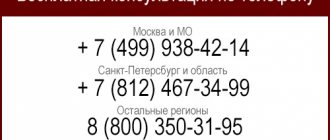When is the debt for utilities paid off, after how long?
- According to Art. 266 of the Tax Code of the Russian Federation, a debt that is unrealistic to collect is recognized as a debt of the payer for which the statute of limitations has expired, as well as a debt for which the impossibility of collection is confirmed by a decree of the bailiff.
- In addition, a debt is considered hopeless if the obligation is terminated due to the impossibility of fulfilling it on the basis of an act of a government agency. That is, the utility service upon the death of the payer (in the absence of heirs), if it is impossible to collect the debt after the end of enforcement proceedings, as well as in the absence of the debtor property on which collection may be directed is obliged to classify the debt as doubtful and write it off.
Is it possible to conclude a settlement agreement with the management company with subsequent restructuring?
Art. 153 of the RF Housing Code obliges all users of utility services to make timely payments. If the payer’s life circumstances have changed (loss of job, health problems), then you should not let the situation with utility payments take its course.
If you are unable to repay the debt, you need to contact the management company with a request to restructure the debt. Typically, the resource provider or management company asks to deposit a certain amount at once, and repay the rest of the debt over the time agreed upon by the parties to the agreement.
Such a scheme cannot be called a debt write-off in full, since in reality the utility debt will have to be paid off, but part of the penalties and fines will be written off.
Receiving subsidies or benefits
The second option to get rid of the burden of utility debts is to apply for a subsidy. If the payer (a member of his family) is entitled to receive benefits, they must also be used.
Of course, if you have debt, it will not be easy to apply for a subsidy or benefit, since regional laws regarding the provision of support to vulnerable segments of the population set a restriction - the absence of debt to public utilities. Paragraph 47 of the resolution of the plenum of the Supreme Court dated June 27, 2020 No. 22 indicates that debt cannot be a basis for refusal to provide subsidies or benefits.
Of course, this method will not write off the existing debt for housing and communal services, but it will make it possible not to increase it, but even to repay it a little when the subsidy arrives.
What rights does the debtor have?
Be that as it may, the debtor also has rights. By filing a response to the court about unfair claims from the management company, as well as incorrect calculation of interest, you can achieve a complete cancellation of the order. After which, utility companies will have only one option left: filing a claim in court on a general basis.
I would like to emphasize that this process will last a very long time, which gives a person the opportunity to come to his senses and finally begin to pay his debts! If the debt has not been paid within thirty days, according to the law, utility companies have every right to turn off electricity, gas, water, and heating in the house/apartment.
A sample application for recalculation of rent can be found here.
What documents are required to file a claim in court?
When filing a claim in court, utility companies are required to make sure not only that the defaulter has no valid reasons, but must submit all related documents, namely:
- calculation of penalty on debt;
- receipts with the amount of debt;
- written notification to the defaulter about the existence of a debt for utility services;
- other documents confirming the existence of the debt.
The absence of the above documents may give the defaulter a reason to file a counterclaim with the management organization.
Can heat/water supply be turned off for non-payment of debts?
Yes, unfortunately, management companies have every right to do this in two cases.
- When turning off electricity, gas, water, heating is done with the aim of influencing the debtor so that he pays his bills.
- It is technically impossible to supply the house with electricity and water.
Not paying utility bills, what does it lead to?
After full repayment of the debt, utility companies are required to immediately connect the apartment/house to electricity, gas, and electricity; they are given two days to do this. Possible costs for restoring the connection always fall on the debtor, since it was his non-payment that forced the supplier to disconnect the resources.
Eviction from an apartment as a consequence of non-payment of utility bills
Such a measure of influence can only be applied if a person lives in rented housing. Eviction of the owner from the property, as a consequence, for non-payment is completely impossible under the law.
When eviction occurs, as a rule, the reason is not the amount of debt, but 6 months of non-payment of utilities.
In addition, eviction of a debtor is possible only with the consent of the court. Moreover, during litigation, the reasons why a person could not pay utility bills on time are taken into account. But even in the event of eviction, the debtor must be given another housing.
Is it possible to write off debts beyond the statute of limitations?
There is indeed a possibility of writing off overdue debt due to the expiration of the statute of limitations.
The statute of limitations is 3 years, and if a citizen has a debt for 5-6 years, then only part of the debt will be canceled.
To apply the statute of limitations provisions, you need to wait until the Criminal Code begins to collect the debt through the court. This will happen when the amount of debt reaches a critical level for the management company. In a lawsuit, the debtor must ask the court to stop the proceedings due to the expiration of the statute of limitations.
How to write off housing and communal services debts over 3 years without going to court
See above. Without a trial, such debts cannot be written off. Since management companies will fight for their money spent on housing and communal services and go to court.
New law on writing off housing and communal services debts
To date, there is no law regarding utility debts. The procedure for paying housing and communal services and liability for non-payment is established by Article 155 of the Housing Code of the Russian Federation.
The State Duma is considering a bill that would allow bad debts for housing and communal services to be written off. If the law, which was submitted to the State Duma by members of both chambers of the Federal Assembly, is adopted, then the debt of citizens will be written off as hopeless when the statute of limitations expires.
How to check debt
You have to find out the amount of debt from time to time in order to understand how much you will have to pay to your management company. Today you can check your debt in several ways, both in person and online, however, before doing this, you should find out your personal account number:
- Independent visit to the management company servicing a specific apartment building. The method is good for those who do not know how to use the Internet or do not have access to it.
- Personal account on the UK website . Almost every government now has its own website, where it creates personal accounts for residents. In them, they can find out their outstanding payments, as well as use other functionality.
- Government services . To view debts you will need to register on the portal. There you can immediately pay off the debt.
- Contacting the resource supplying organization. Water, gas, electricity are supplied by different companies. If you have a debt for one of the services, you can call the number indicated on the receipt and find out how much you owe, for example, for gas. In case of debt for several housing and communal services, you will have to contact several companies.
- ATMs . Select “utilities” at the ATM and enter the details indicated on your receipt in the fields. After this, the amount owed will be indicated on the screen.
Fine for non-payment of utility bills
If you have a debt, you may be subject to penalties. They cannot be classified as a fine; rather, they are one of the types of penalties.
Penalties begin to accrue for each day of delay, starting from the 31st day following the moment when payment should have been made until it is made. Simply put, the debt grows until the tenant pays everything.
The fine is 1/300 of the refinancing rate of the Central Bank of the Russian Federation.
If you are still unable to pay the debt within 90 days, then the consequence is a change in the rate from 1/300 to 1/130.
Measures to influence debtors
To reduce the amount of debt from homeowners, utility services can apply several measures at once:
- Penya. Starting from the 31st day of delay, interest will be accrued on the debt daily - a penalty, the amount of which depends on the period of non-payment. From the 31st to the 90th day of delay it will be 1/300 of the refinancing rate of the Central Bank of the Russian Federation, and starting from the 91st day - 1/130 of the rate.
- Pausing and shutting down. Further, if there has been no payment for more than 3 months, the utility company has the right to suspend the supply of the service, and then completely turn it off. At the same time, they do not have the right to turn off cold water and heating during the heating season - so utility workers turn off hot water, gas, electricity and the intercom. The company is obliged to restore the service after paying the debt within 2 days, and payment for restoration work falls entirely on the shoulders of the owner.
- Trial. First, the owner of the square meters is given the opportunity to voluntarily (within 30 days) repay the debt, or enter into an agreement on its restructuring with the management company. But if this measure does not have any effect, the case is sent straight to court. Since 2020, this procedure has been significantly simplified - the court will take no more than 5 days to make a decision, even without a public hearing. As a result, after a decision is made in this case, the utility service turns to the Federal Bailiff Service. They apply several penalties: arrest or confiscation of property with subsequent sale at auction, restriction of registration actions with property, ban on leaving the country, and more.
- Eviction. This measure applies to those who rent municipal housing from the state and do not have valid reasons for non-payment of debt (such as illness/disability of the owner or his relatives, layoffs or the presence of small children). At the same time, the state is obliged to provide the citizen with housing of at least 6 sq.m. per person.
Impossibility of collection
Writing off the debt is impossible; the debtor does not have money or property that can be seized and subsequently sold. In this case, the bailiff will issue a ruling to terminate the enforcement proceedings.
“If a person does not have the means to repay a debt, then in enforcement proceedings there is an impossibility of collection. The person simply has nothing to collect,” says the lawyer. In this case, the bailiff makes a decision on the impossibility of collecting the debt, and enforcement proceedings are terminated.
How can you avoid paying rent penalties?
In the process of debt collection, along with penalties, the main role is played by the agreement, which is drawn up between the owner of the property and the management company that provides utilities for residential premises.
Legal rights to refuse
The Law on Rent Debtors, which was adopted in 2020, states how penalties should be collected, and in particular states that they should be calculated on the total amount of debt for each day of late payment. It is worth noting the fact that the maximum permissible percentage is also determined, and it is 1/300 of the refinancing rate adopted by the Central Bank.
- application for recalculation - such a document must be submitted to the service organization no later than 30 days after return or before departure. Payment amounts may be reduced for a period of 6 months. If this time is not enough, you will have to repeat the application;
- papers confirming the fact, reason and time of absence (copies or scans of tickets, travel certificate, etc.).
- death of a debtor tenant, as well as liquidation of a legal entity that received utility bills;
- lapse of time;
- declaring the debtor (individual) bankrupt;
- the inability of bailiffs to implement a court decision in practice.
Rent reduction when tenants are away
In case of late payment of housing and communal services receipts or non-payment, the accumulation of the amount of the penalty, called the term “penalty”, begins. However, some categories of citizens are allowed to write off penalties or significantly reduce their size.
- The amount of debt for housing and communal services as of February 10, 2020 is 2300.00 rubles. Of these, 1100 rubles. — for January 2020 and 1200 rub. for December 2020.
- Payment was received on the 19th of the same month.
- Number of days overdue: 9 (11th, 12th, 13th, 14th, 15th, 16th, 17th, 18th and 19th).
- The calculation of penalties will look like this:
- 1200.00 * 0.11 / 300 * 9 = 3.96 rub.
- Second example:
- The amount of debt for housing and communal services as of March 10, 2020 is 8571.28 rubles. Of these, 701.27 rubles. for October 2020, 1650.88 rub. for November 2020, 1971.01 rub. for December 2020, 2096.50 rub. for January 2020 and 2151.62 rubles. for February 2020.
- Payment was received on the 15th of the same month.
We recommend reading: Purchasing Real Estate Taxation of Individuals in 2020
Bankruptcy
From October 1, 2020, debtors have the opportunity to write off housing and communal services debts in the event of bankruptcy. To do this, you must write a bankruptcy petition and have debt on loans or housing and communal services payments in excess of 500 thousand rubles, and also not have a permanent job for more than three years. If the debtor is declared bankrupt by a court decision, he will be released from paying debts, and the creditor will have the right to write off the debt in accordance with the court decision.
“Thus the performance obligations cease. That is, if there is not enough property to fulfill a specific obligation to pay the debt of the management company, then it will be impossible to collect the debt for past periods,” explains Nekrasov.
How else to reduce
Not the easiest, but the most effective way to reduce debt for overdue utility bills is to go to court. The reasons for the claim include:
- incorrect calculation carried out by the management company, which affected the final size of the utility bill (the application must be accompanied by its own calculation and payment receipts);
- discrepancy between the guilt and the punishment (if the fine is greater than the offense, the court makes a decision to reduce the penalty);
- impossibility of repaying the debt due to a weakened financial situation (disability, loss of job).
The court takes into account all the points that may affect the timing of payment of utility services; it is unlikely that it will be possible to write off the debt completely, but it is always possible to postpone the payment deadlines without charging additional fines. They refuse only in cases where similar applications from a citizen have already been received and were satisfied earlier, which did not lead to a change in the plaintiff’s attitude towards payments.
Avoiding debt through bankruptcy
A citizen (or his creditor) can file an application for declaring himself bankrupt in arbitration when his total debt is more than 500 thousand rubles, and his income does not allow him to pay his debts on time and in full (or make current payments) within three months from the moment they must be paid. This is stated in Article 213.3 of the Federal Law “On Insolvency (Bankruptcy)” No. 127 - Federal Law of October 26, 2002.
It is clear that debt for housing and communal services in excess of 500 thousand rubles is extremely rare. Therefore, the law understands this amount as a variety of debts. As a rule, this is debt to banks and microfinance organizations. But since the legislator does not divide it by type, during bankruptcy not only debts to banks, microfinance organizations and other creditors are written off, but also debt for housing and communal services.
And if, after the sale of the owner’s property and the completion of bankruptcy, there still remain some debts to creditors (including housing and communal services), then they are considered repaid and are written off from the balance sheet of the management company (HOA, RSO). The bankruptcy petition is filed with the arbitration court at the place of registration of the citizen. The application form can be downloaded from the arbitration court website or on the Internet. Attached to it are documents confirming the fact of the debt, a list of creditors to whom the applicant owes money, an inventory of the citizen’s property, copies of documents confirming ownership, and so on.
But here it should be clarified that bankruptcy of an individual as a result of debt for housing and communal services is impossible in itself. Or it's so rare that I've never seen it. Debt for utility bills is always “written off” during a citizen’s bankruptcy “in addition” to other debts. Therefore, a normal, ordinary person will never go “bankrupt” solely on utility bills. Important: If you decide to “go bankrupt” or a third-party creditor has filed for bankruptcy against you, then do not forget to indicate the management company, homeowners association or RSO in the list of your creditors. Unless, of course, you also have debt for utilities. And remember that the beginning of bankruptcy proceedings does not exempt you from current payments for housing and communal services.
How to pay off utility debts
Many inexperienced debtors are interested in the order in which they should repay the debt, what to pay first - the debt itself or the fine, whether there will be other expenses. The answer to this question is given to citizens to some extent by Art. 319 of the Civil Code of the Russian Federation. It indicates that when repaying a debt, the debtor is obliged to follow a certain sequence. So, first the creditors' costs are paid, then the fine, and only at the very last moment the debt itself.
But it is incorrect to apply this article to debts for utility bills, since debts in this area are most often the costs of the management company, which pays off the resource supplier using internal reserves. For this reason, the owner of the premises first settles the principal amount of the debt and only then pays the fine.
Understanding the current situation is not as easy as it seems; the defaulter often does not even suspect that the debts owed to him can be recalculated and reduced. So, if for any month of the current year the amount indicated in the payment order is 25% or more higher than that indicated in a similar document dated last year, the homeowner has the right to ask for payment in installments. If the application for installment payment is approved, the receipt for the next month will include the following entries:
- payment amount for the current period;
- percentage of the debt amount – 1/12;
- installment interest (equal to the refinancing rate multiplied by 3).
Thus, it is not at all necessary to try to pay off everything at once or worry about the costs to the service provider; you can always go the other way.
Get out of debt by giving up everything
Write-off of debt for housing and communal services is possible if the bailiff issues a resolution to complete the enforcement proceedings. This is stated in Article 46 of the Federal Law “On Enforcement Proceedings” No. 229 - Federal Law dated October 2, 2007. For example, the court collected debts, the bailiff initiated enforcement proceedings, but was unable to collect anything, since the debtor does not receive a pension, nowhere works, has no property, income, and so on. It is clear that this option for escaping debt is relevant mainly for “homeless people,” alcoholics, drug addicts and other asocial elements.
Penalties for housing and communal services
1. The heirs who accepted the inheritance are jointly and severally liable for the debts of the testator (Article 323). Each heir is liable for the debts of the testator within the limits of the value of the inherited property transferred to him.
Advice from lawyers:
Despite the fact that you sold the apartment, the debt remained with you. Therefore, penalties were accrued legally.
No more than 50% of income can be deducted from the account
monthly But if there were savings in the account, they have the right to keep them all.
Is it possible to legally avoid paying penalties on utility bills? The situations can be very different: someone borrowed money from relatives and cannot pay it back, other people are being pursued by debt collectors for overdue loan obligations, and others simply could not pay for household services on time.
We recommend reading: Why Reimbursement for Utilities for Pensioners is Less From April 2020
Taking into account the interests of the population, management organizations and companies that supply the population with the necessary resources, the Government has adopted some documents that thoroughly regulate all the actions that the population must take when paying for housing and communal services. These are the Civil Code, the Housing Code and Federal Law No. 307, as well as the procedure for the provision of utility services. All these documents significantly tighten payment discipline, and this process concerns all parties involved in this.
Introduction
How to write off, cancel penalties Penalties are the prerogative of the creditor and are assigned or canceled at his discretion. Typically, suppliers do not cancel penalties, but taking into account the financial condition of the debtor, they can make such a decision and also provide payment in installments.
The order of repayment of claims for any monetary obligations is carefully spelled out in Article 319 of the Civil Code. In particular, this rule indicates that the amount of the payment made, which is not enough to fulfill the existing monetary obligation in full, in the absence of any other agreement, first of all pays off the creditor’s costs associated with obtaining fulfillment, after which they are paid interest and only then the principal amount of the debt is repaid.
Punishment for non-payment of bills
The consequences of non-payment of bills are serious; the minimum option is the accrual of penalties. Responsibility for payment and control of the issue lies with the owner of the house or apartment - it is a direct responsibility to pay bills regularly. In case of violations, the government authority issues the first warning; if there is no result, an appeal is made to the court for official proceedings. According to statistics, claims will be satisfied, attracting the owner to compensation for legal costs and full payment of housing and communal services receipts (the amount includes a penalty).
If municipal or state housing is rented, a social rental contract is concluded on a first-come, first-served basis, with further full responsibility on the tenant. His responsibility: to make timely payments for water, gas, heat, electricity. In case of non-compliance with the terms of the contract, they have the right to evict him. Renting private property places full responsibility on the owner. This point is legally stated in the contract.
Effective methods of legally writing off utility debts
- sharing the responsibility for paying utility bills among all owners of residential premises;
- application of recourse to collect utility bills;
- application of the statute of limitations during legal proceedings;
- deferment/subsidization of debt to the management company and service providers.
By voluntary or judicial procedure, it is possible to divide the burden of payments between several owners of residential premises (provided that the apartment belongs to more than one person). At the same time, they will pay in direct proportion to their share of home ownership. This will not help to completely get rid of the obligation to pay bills provided by housing and communal services, but the amount of rent will still be significantly reduced.
How to find out your debt
How can you find out if you have a debt on utility bills for an apartment?
First of all, you need to regularly check your personal account and pay attention to the amount in the receipts. Effective methods of quick verification: by personal account, through government portals on the Internet and at your residence address.
By personal account
A personal account is the main way to find out if there is a rent debt. Many online services through which payments are made require the user to log in to their personal account. To clarify whether you have a debt, you must enter the following data in the appropriate fields:
- the address of the property to which the receipt is sent;
- account number, payer code;
- email.
The information on the site will be automatically saved.
By the address
There are many ways to clarify the debt for housing and communal services, knowing the address. The most popular options:
- call the landline phone of the management company or housing office, talk to a specialist. You need to find out the number of the current account or accounting department, tell the accountant the home address at which the debt is being clarified;
- personally visit a government agency. This is the easiest way to obtain information. Be sure to check the opening hours and reception hours of the settlement department in advance. The client is given a debt document, a receipt that needs to be paid. Payment through the cash desk is made without commission or fees. If the receipt is for a decent amount, which is difficult to pay at one time, you can enter into an agreement between the parties on gradual repayment;
- view data via the Internet - online bank, city portal, services, terminal or ATM.
On the Internet through online services
The most convenient options to find out about the debt are through Internet portals, online banks, and payment terminals. If there is no address information, you can check it using personal information - the last name of the consumer who signed the real estate contract. For convenience, large banks offer their clients to complete contracts and pay debts via the Internet. In order for companies to display correct data, it is recommended to correctly indicate the address and city in which the house/apartment is located. For example, Sberbank online offers its clients to open a personal account on the official website, register and select payment payment points for themselves:
- translation method;
- payment for services and purchases;
- home telephone and housing and communal services;
- rent;
- electricity and others.
You can check whether there is a debt after indicating the company that provides the services and indicating your personal account number. The Sberbank template for housing and utility payments displayed on the monitor displays the total amount of debt for all recent months.
Writing off debts after death
Death writes off all housing and communal services debts “hanging” on the homeowner or tenant. Relatives of the deceased must send a copy of the debtor's death certificate to the Criminal Code (or to the RSO, if a direct agreement has been concluded).
If the Criminal Code, not knowing about the death of the debtor, submits an application to the court to collect funds from him, then the court, having received the relevant information, will issue a ruling to terminate the proceedings in connection with the death of the defendant. And the management company will write off the debts.
How to find out if you owe rent
As a result of debt, the homeowner may face a number of problems, so we recommend that you carefully monitor the status of your personal accounts. You can use the following methods:
- Personal visit to the housing office. Here you will be given the most comprehensive information about the presence of any rent arrears, however, the disadvantage is often the long queues at the offices of management companies.
- Internet. You can also go to the website of government services or your management company, go through a short registration by entering your personal data and personal account number and receive comprehensive information about the latest payments. Here you can pay debts for utility services online, print receipts, submit meter readings and much more.
- Call the numbers indicated on the receipts. By providing your exact address and full name, you can receive prompt information from dispatchers about the status of your personal account. However, it is not always possible to reach the office, so there is another way - to call directly to the company that provides the services (telephone numbers are often indicated on the company’s websites or on receipts sent by mail).
- Through the bank. By contacting the bank's cash desk and providing a receipt for the previous period, you can obtain complete information about the amount of debt in the account. And, having written out the bank details from the receipt, you can use the services of an ATM or bank terminal - to do this, just select the payment period and type of service, and also indicate your personal account number. As a result, you will see the amount of debt on the screen, having the opportunity to immediately pay it by card or cash. Be careful: the terminals do not give out change, so we recommend preparing the required amount in advance.
Can debts for housing and communal services be written off?
Payment of utilities is the responsibility of each property owner who has entered into an agreement with the management company. When selling a real estate property, the debt for the apartment does not pass to the new owner, but remains with the former owner.
The purchase and sale agreement may provide for a clause under which the amount of debt will proportionally reduce the redemption price of the property.
By statute of limitations
At the legislative level, there is a statute of limitations for housing and communal services debts. This rule applies as follows:
- The expiration of the statute of limitations occurs after 3 years of non-payment of housing and communal services debts . That is, after the specified time, the plaintiff loses the right to sue, and the debtor now may not pay at all - and this is already legal;
- if the debtor does not pay the debt on his own, then the resource supplying organization has the right to file a corresponding claim (example);
- collection of debts for housing and communal services can be carried out only for the last three years preceding the start of the trial (all debts after 3 years cannot be claimed);
- if the debtor at the court hearing does not indicate the need to apply the rule (article) on the statute of limitations, then the court decision can be made to write off the debt in full (since the principle of legal proceedings is impartiality, therefore the judge cannot tell the parties to the process how it is more profitable to defend their position).
Due to the death of the debtor
Due to the fact that debts follow the owner who allowed them to accumulate, the occurrence of his death entails the complete termination of all rights and obligations of the subject , including the automatic write-off of debts for utilities.
The situation is different when the debtor is a legal entity. Cancellation of a legal entity's debt to resource supply organizations is permissible only in the event of bankruptcy of the debtor.
But in this case, it is not so easy to write off housing and communal services debts, since each company begins liquidation procedures related to the sale of all balance sheet property and the repayment of debts from the proceeds. If such funds are not enough, then resource supply companies will have to write off the debt for housing and communal services.
Time will write off...
Partially write off housing and communal services debts thanks to an application for the Criminal Code (RSO) to miss the statute of limitations. It is three years.
And if the subject has not paid, say, 5 or 6 years, and the management company is trying to collect debts for all these years, then the owner of the premises (tenant) has the right to declare in court that the plaintiff has missed the statute of limitations.
This can be done in writing or orally during the meeting. As a result, the court will collect debts for a maximum of the last three years and refuse to collect for later periods. Unless, of course, the debtor himself has previously acknowledged this debt.
By the way, many management companies and RSOs have recently filed lawsuits and court orders for the collection of utility debts only for the last three years. That is, they themselves recognize later debts as unrealistic for collection and write them off.
It would seem that there is nothing complicated here: For utility payments, the statute of limitations is three years
On June 25, 2020, the State Duma received amendments to the Housing Code of the Russian Federation, which stipulate that debts of residents of apartment buildings for housing and communal services are considered uncollectible if the statute of limitations has expired and this has been confirmed by the court.
The authors of the bill remind that every year more and more lawsuits are filed in Russian courts for the collection of debts for utility services. In 2020, there were 3 times more claims in the category “for collection of payments for living space and utility bills, heat and electricity” compared to 2010. If in 2020 the number of such cases was 4.2 million, then in 2020 it increased to 5.4 million. Russians are accumulating rent debts. And currently, the total debt of residents of the Russian Federation for utilities exceeds a trillion rubles.
It would seem that what is so difficult here? In Russian legislation, there is a period for protecting your rights in court - this is the statute of limitations. For utility payments in accordance with Article 196 of the Civil Code of the Russian Federation, it is three years. However, in practice, it is almost impossible for a homeowner, even after going through court, to write off debts due to the expired statute of limitations.
In most cases, management companies bring claims to the courts against citizens to collect debts for housing and communal services for the period from 2010 to 2020. In court hearings, based on applications from defendants, judges can apply statutes of limitations (three years) to debts presented for collection. And they partially refuse the plaintiffs - management companies, thereby nominally reducing the amount of debts of citizens to management companies. After the above-mentioned court decisions enter into legal force, as a rule, defendants execute the court decision and pay the debt determined by the court.
However, management companies continue to include in payment documents debts and penalties for payment for housing and communal services, for which not only the statute of limitations has expired, but also there are decisions that have entered into legal force.
Former debtors are trying to challenge the illegal actions of management companies. They send claims and applications to management companies with a demand to write off the non-existent debt that has appeared again in the rent receipt. Management companies either refuse to satisfy the demands or simply ignore the complaints received from citizens.
And now, due to violation of their rights, homeowners are forced to go to court with claims to exclude the Criminal Code from the payment documents of debts and penalties for payment of housing and communal services, citing court decisions that have entered into legal force.
Practice shows that the judicial authorities, having considered the claims of citizens in this part, refuse the plaintiffs, citing the laws of the Russian Federation. The Civil Code, the Housing Code, the Rules for the provision of utility services to owners and users of premises in apartment buildings and residential buildings, approved by Decree of the Government of the Russian Federation of May 6, 2011 No. 354, do not provide for the possibility or obligation to write off debt. The provisions of Articles 408-419 of the Civil Code of the Russian Federation stipulate that an obligation is terminated by a clear list of circumstances: its proper fulfillment, the provision of compensation, the offset of a counterclaim of a similar nature, the coincidence of the debtor and the creditor in one person, the agreement of the parties to replace the original obligation with another obligation, forgiveness of a debt, impossibility execution, if it is caused by a circumstance for which neither party is responsible, as well as in the event of the death of the debtor, if execution cannot be carried out without his personal participation, or liquidation of a legal entity (debtor or creditor).
And taking into account the provisions of Articles 195, 196 and 199 of the same Civil Code of the Russian Federation, the expiration of the limitation period by virtue of Chapter 26 of the Civil Code of the Russian Federation “Termination of Obligations” is not a circumstance entailing the termination of an obligation. At any time after the expiration of the specified period, the debtor has the right to recognize the debt, and payment in repayment of debt under an obligation with an expired statute of limitations is the proper fulfillment of this obligation. Thus, in fact, the expiration of the limitation period is not a basis for writing off the resulting debt for housing and utility payments and, accordingly, cannot serve as a basis for imposing on the creditor the obligation not to indicate this debt in the payment document.
Management companies can independently decide to restructure the debt or write it off, but this is not profitable for them. Therefore, they are in no hurry to make such a decision, referring to the Regulations on accounting and financial reporting in the Russian Federation, approved by order of the Ministry of Finance of the Russian Federation dated July 29, 1998 No. 34N. According to paragraph 77 of this provision, accounts receivable for which the statute of limitations has expired, and other debts that are unrealistic for collection, are written off for each obligation based on the inventory data, written justification and order of the head of the organization. And they are respectively credited to the reserve for doubtful debts or to the financial results of a commercial organization. Writing off a debt at a loss due to the debtor's insolvency does not constitute cancellation of the debt. This debt must be reflected in the balance sheet for five years from the date of write-off in order to monitor the possibility of its collection in the event of a change in the debtor's property status. However, this provision does not indicate the organization’s obligation to write off debt, but only provides for the right to such write-off.
The preservation of illegal and unjustified debts and penalties in payment documents for payment for housing and communal services, for which the statute of limitations has actually already expired, infringes on the civil rights of residents of all constituent entities of the Russian Federation, the authors of the bill believe and are trying to cut this Gordian legal knot with their initiative. In their opinion, recognizing utility debts as uncollectible if the statute of limitations has expired and this has been confirmed by the court at the legislative level will allow owners and tenants of residential premises to restore their violated rights in pre-trial and judicial proceedings.
To the point
A story without continuation
On the Internet there are even links to documents on the basis of which debts for housing and communal services will supposedly be written off in 2020: presidential decree, order of the Ministry of Finance, etc. However, neither the details of these legislative acts, nor the number, nor the date of adoption are indicated. The source of these rumors was originally the latest news from Chechnya. At the beginning of 2020, at the request of the Grozny prosecutor’s office, the city court ordered the local branch of Gazprom to write off debts for gas. The claim was satisfied in the amount of over 9 billion rubles. This court decision became the reason for the statement of the deputy from the Communist Party of the Russian Federation Alexei Kurinny. He made the following proposal on air at the radio station: to write off the uncollectible housing and communal services debts of all Russians. However, the story had no continuation. Deputies of legislative assemblies of many regions called on local prosecutors' offices to formulate similar claims and follow the example of the Grozny prosecutor's office. But law enforcement officers are in no hurry to prepare documents for the court.
Thus, in Samara, a deputy of the regional Duma approached the supervisory agency with a proposal to file a claim to write off unrealistic debts of citizens for housing and communal services. The prosecutor's office rejected this initiative, citing the impossibility of interfering in the administrative and economic activities of legal entities.
Reference
The procedure for applying the statute of limitations has its own characteristics for utility payments. Firstly, the statute of limitations applies only at the request of the defendant. The judge does not have the right to apply it independently. The limitation period begins to run from the moment when the creditor learned or should have known about the violation of the fulfillment of obligations. That is, in this case, from the moment when payment should have been received.
Alla Mishina, newspaper “Freedom Square”, [email protected] Original article published in the newspaper “Freedom Square” Media registration certificate PI No. TU 63 - 00766 dated 01/21/2015
What should the management authority do if the debtor applies for debt write-off?
After the bankruptcy procedure was completed, the debtor applied to the management authority, homeowners association with an application to write off the debt, attaching to the application a court ruling declaring him bankrupt, terminating the procedure for settlements with creditors, etc.
The question immediately arises: what to do and is it obligatory to write off the debt?
It should be noted that in this case there is no single algorithm for the actions of the management authority to write off debt, just as I noted earlier, there are no requirements for maintaining personal accounts for housing and communal services. When receiving an application from a bankrupt, the management authority is obliged to take into account the provisions of the Federal Law on Bankruptcy regarding the termination of obligations.
The article will be useful: If you have decided to create an HOA - do you need to obtain a license?
Many management companies continue to make accruals taking into account the debt that is subject to write-off, and payments received in the future from the owner are counted against this debt. There is no need to talk about the legality of accounting for payments against obligations that are considered by virtue of the Federal Law on Bankruptcy, and therefore there is no point in reflecting debts in payment documents as of the date of the court’s determination.
Traditionally, there are two options for reflecting debt write-off from the point of view of maintaining personal accounts:
- closing the current personal account on the date of debt recognition of the debtor as bankrupt and further opening of a new personal account;
- making changes (adjustments) to the current personal account in terms of “writing off” the debt on the date the debtor was declared bankrupt.
How the statute of limitations can reduce your sentence
The general statute of limitations, which is set at three years, applies to the collection of debts for utility bills and rent. The limitation period is provided for by civil law. And as a general rule, it can only be applied at the initiative of a party to the lawsuit.
That is, the court cannot take advantage of this provision of the law on its own initiative. This right is granted only to the plaintiff or defendant.
Thus, if we assume that the debtor has not paid for ten years, then collection can only be made for the last three years. If the defendant does not file a petition for the court to apply the statute of limitations, the court will make a decision to collect the debt for the entire ten years.
That is, claims for collection of rent debt will be satisfied in full. If during a ten-year period the debtor periodically made payments, there was written communication with the utility company, and a deferment for payment was signed, then the statute of limitations begins to count from the last event. That is, it is counted in a new way.
ATTENTION! Look at the completed sample application for the application of the limitation period:








